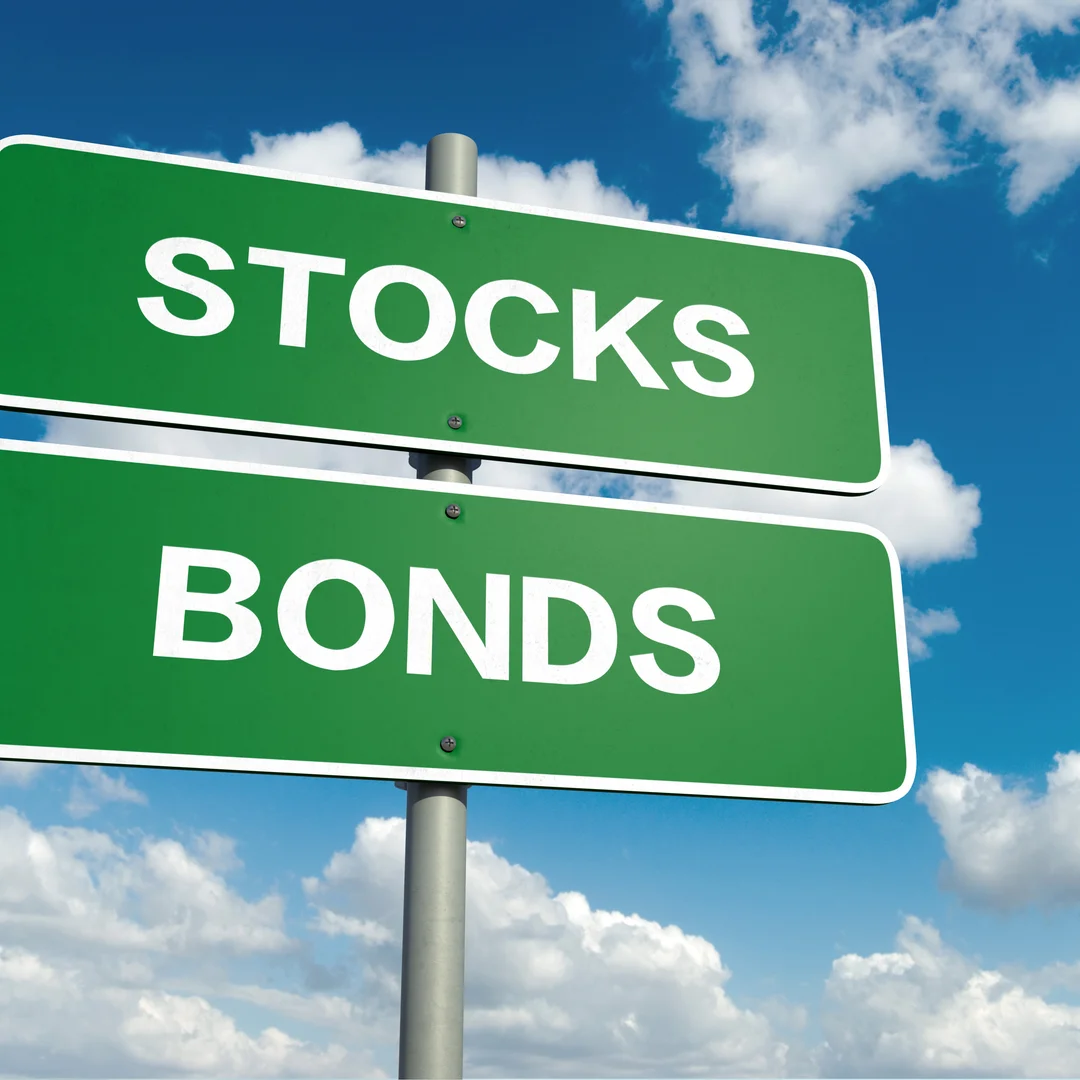Difference Between Stocks and Bonds
The difference between stocks and bonds is a fundamental concept that every budding investor should grasp. When exploring the realm of finance individuals often face a choice, between two favored investment options; stocks and bonds. Although both avenues offer opportunities to invest and increase wealth they possess attributes and varying levels of risk.
Table of contents
- What Are Stocks?
- Are Stocks Down?
- Are Stocks Good to Invest In?
- Are Stocks Up Today?
- Are Stocks Shares?
- Are Stocks Cheap?
- Are Stocks Volatile?
- Are Stocks Oversold?
- Are Stocks Undervalued?
- Pros and Cons of Stocks:
- Can Stocks Make You Rich?
- Where Can I Buy Stocks?
- Can You Invest in Stocks at 16?
- Can You Owe Money in Stocks?
- Did Stocks Hit Bottom?
- Did Stocks Cause the Great Depression?
- Do Stocks Go Down in a Recession?
- Do Stocks Pay Dividends?
- Do Stocks Trade on Weekends?
- Do Stocks Outperform Treasury Bills?
- Do Stocks Get Taxed?
- Do Stocks Compound?
- Do Stocks Have Expense Ratios?
- Does Stocks Count as Income?
- Does Stocks Come Under 80c?
- Does Stocks Count As Income for Mortgage?
- How Stocks Trade?
- How Stocks Buy?
- Should Stocks Be Put in a Trust?
- How Long Should Stocks Be Vented?
- What Stocks Should I Invest in?
- Should I Sell My Stocks?
- What Stocks Should I Invest in 2023?
- What Stocks Are in the S&P 500?
- What Are Bonds?
- Are Bonds A Good Investment?
- Are Bonds Taxable?
- Are Bonds Tax-Free?
- Are Bonds Fixed Rate?
- Are Bonds Callable?
- Are Bonds Short Term?
- Are Bonds Protected From Inflation?
- What is a Covalent Bond?
- Difference Between Ionic And Covalent Bonds
- How to Change An Address On Premium Bonds?
- Pros And Cons Of Bonds
- Can Bonds Lose Money?
- How Many Premium Bonds Can I Buy?
- Do Bonds Pay Dividends?
- Do Bonds Compound Interest?
- Do Bonds Pay Monthly?
- How Do Bonds Work?
- Why Have Bonds in Your Portfolio?
- How Have Bonds Performed in 2023?
- Are Bonds Short Term?
- Are Bonds Ionic or Covalent?
- Are Bonds Worth It?
- Should Bonds Be in Roth Or Traditional?
- Should I Buy Bonds Now?
- What Bonds To Buy?
- What Bonds Are Hydrogen Bonds?
- Will Bonds Go Up in 2023?
- Will Bonds Recover in 2023 in the UK?
- Will Bonds Outperform Stocks in 2023?
- Difference Between Stocks And Bonds
- Youtube Video: Difference Between Stocks And Bonds
- Final Thought
What Are Stocks?
Shares, also referred to as stocks represent ownership in a company. When someone buys shares they acquire a portion of the company. Become entitled, to a share of its assets and profits.
The value of shares can vary depending on factors such, as the companys performance, overall market sentiment and broader economic conditions. Many people often wonder about the difference between stocks and bonds. Stocks represent ownership while bonds can be seen as loans provided to companies or governments.
Are Stocks Down?
The stock market is constantly evolving, with fluctuations occurring based on news and corporate earnings reports. It’s important to stay updated with time data or seek guidance from a reliable financial advisor to understand the current market conditions. Unlike stocks bonds react differently to these market conditions making them distinct investment options.
Are Stocks Good to Invest In?
Throughout history investing in stocks has proven to be lucrative, over periods of time. However it’s important to acknowledge that stocks also carry risks. To minimize these risks it is advisable to build a portfolio that includes a combination of assets. When comparing stocks and bonds it is worth noting that bonds are generally considered to be less risky, than stocks.
Are Stocks Up Today?
The stock market is impacted by factors, such, as events, economic data and news, from companies. To stay updated on stock market trends investors should check news sources or their brokerage platforms. Bonds, on the other hand, are less influenced by daily events, highlighting a key difference between stocks and bonds.
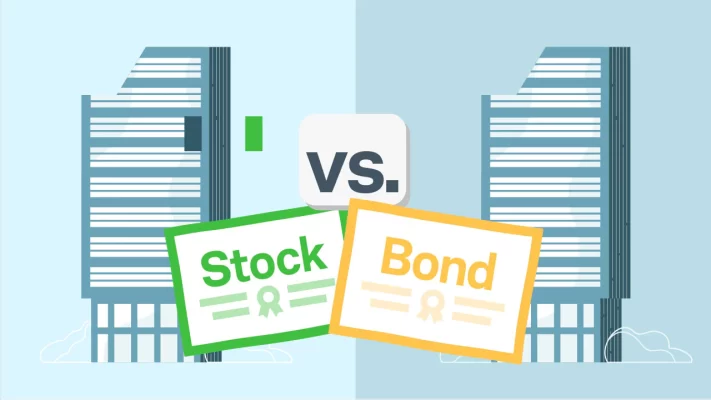
Are Stocks Shares?
Certainly the terms “stocks” and “shares” are frequently used interchangeably. They both pertain to possessing a portion of ownership, in a company. However while “stocks” can encompass the ownership of companies “shares” generally pertain to possessing a stake in a company. It’s important to note that this differentiation is distinct from the contrast, between stocks and bonds as stocks denote ownership while bonds represent debts.
Are Stocks Cheap?
The value of a stock is subjective. Depends on factors. Investors consider aspects such, as price to earnings ratios, growth potential and industry comparisons to assess whether a stock is undervalued or overpriced. It’s important to conduct research and analysis in this process. When comparing stocks and bonds it’s worth noting that bonds have a face value and an interest rate, which affects their valuation differently, than stocks.
Are Stocks Volatile?
Stock prices can sometimes change quite a bit over periods of time. There are things that can cause these changes like big events happening around the world or news that is specific, to a particular company.
Investors who are in it for the haul usually don’t worry too much about these short term ups and downs because they’re focused on the potential for bigger gains, in the future. This volatility is a notable difference between stocks and bonds, as bonds tend to be more stable.
Are Stocks Oversold?
The idea of a stock being considered “oversold” comes from analysis. It implies that the price of a stock has dropped excessively and may be poised for a recovery. However it’s crucial to incorporate analysis, alongside indicators to gain a comprehensive perspective. This analytical approach differs from that of bonds as stocks and bonds have valuation methods.
Are Stocks Undervalued?
An underappreciated stock refers to a stock that is trading below its value. To identify stocks one must thoroughly examine the companys underlying factors, such, as its earnings, potential for growth and position, within the industry. When considering the difference between stocks and bonds, bonds are evaluated based on their yield, creditworthiness of the issuer, and prevailing interest rates.
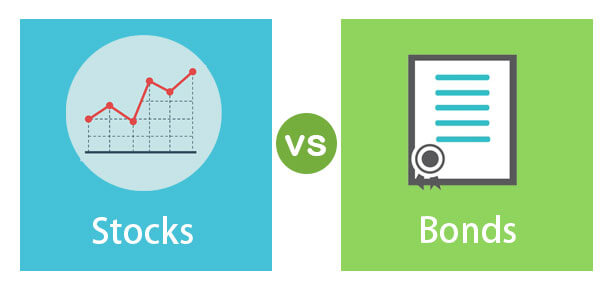
Pros and Cons of Stocks:
Pros: Investing in growing companies offers the potential, for returns, access to funds and the opportunity to have a stake, in their ownership.
Cons: Investing in stocks and bonds comes with its share of risks and rewards. It’s important to monitor your investments due, to the potential for volatility and the possibility of experiencing losses. This distinction, between stocks and bonds is a factor to consider when making investment decisions.
Can Stocks Make You Rich?
Investors have found success, in accumulating wealth through stock investments. Its important to keep in mind that stocks also carry risks. Experts often suggest adopting a diversified and long term strategy. When considering the distinction, between stocks and bonds it is crucial to acknowledge that while stocks present the possibility of returns bonds provide stability.
Where Can I Buy Stocks?
People have the option to buy stocks either through brokerage firms, including platforms or traditional brokers. Additionally certain companies provide stock purchase plans. On the other hand, bonds can be purchased through similar platforms, but the difference between stocks and bonds is in their issuance and trading mechanisms.
Can You Invest in Stocks at 16?
In lots of places people who are, under 18 need a guardian or custodian to open a brokerage account for them. Nevertheless it’s an opportunity for young individuals to gain knowledge, about investing. This age limitation is another factor that sets apart stocks and bonds as bond investments could have varying rules based on age.
Can You Owe Money in Stocks?
Usually long as you invest the money you actually possess you won’t find yourself in debt. However if you decide to participate in margin trading (which involves borrowing money for investments) there’s a possibility of owing money if your investments turn out to be unsuccessful. It’s essential to understand the difference between stocks and bonds when considering borrowing to invest.
Did Stocks Hit Bottom?
Determining the bottom of a market decline can be quite difficult. Is usually only evident, in retrospect. Investors typically rely on indications of market stabilization and economic recovery to assess this situation. Additionally it’s important to consider how stocks and bonds may respond differently during downturns, in the market.

Did Stocks Cause the Great Depression?
The Great Depression was not solely caused by the stock market crash of 1929 as there were financial and external factors that contributed to the prolonged economic downturn. It is important to note that during this period the difference, between stocks and bonds played a role in how each asset class was impacted.
Do Stocks Go Down in a Recession?
In cases when a recession begins it is common for stocks to decrease as corporate earnings decline and uncertainty rises. However it’s important to note that stock prices don’t always consistently go down during these periods. Some sectors or specific stocks might even thrive. Bonds, given the difference between stocks and bonds, might act as a safer haven during such times.
Do Stocks Pay Dividends?
Many companies choose to share a portion of their profits, with their shareholders through dividend payments. However it’s important to note that not all stocks offer dividends those that’re, in a phase of rapid growth. This is one way in which stocks and bonds differ; unlike stocks bonds typically provide interest payments.
Do Stocks Trade on Weekends?
On weekends the major stock exchanges such, as the NYSE and NASDAQ are not open for trading. However it’s worth noting that there might still be some after market trading taking place and the prices of stocks can be influenced by markets in time zones. On the hand it’s important to consider that bond markets may have their specific trading hours, which highlights the distinction, between stocks and bonds.
Do Stocks Outperform Treasury Bills?
Historical data has shown that stocks have tended to perform than treasury bills, over extended periods. Nevertheless treasury bills are often regarded as an investment option, with risk. This performance distinction is another aspect of the difference between stocks and bonds.
Do Stocks Get Taxed?
When you sell stocks for more, than what you bought them for the profits are typically subject to capital gains tax. It’s important to note that depending on where you live the dividends you receive might also be taxable. On the hand bonds pay interest and the tax implications for that can vary, highlighting the contrast, between stocks and bonds.

Do Stocks Compound?
Certainly when dividends are reinvested. This compounding phenomenon has the potential to greatly enhance returns over periods of time. It’s worth noting that bonds, due to their characteristics and the distinctions, between stocks and bonds may exhibit varying compounding effects in the case of zero coupon bonds.
Do Stocks Have Expense Ratios?
Stocks traded individually do not have expense ratios. However when it comes to funds and exchange traded funds (ETFs) that consist of stocks they do have expense ratios that reflect the cost of managing the fund. It’s worth noting that while stocks themselves don’t have expense ratios, understanding the difference between stocks and bonds can help investors make informed decisions about where to allocate their funds.
Does Stocks Count as Income?
When it comes to selling stocks any gains you make are usually not classified as income. However dividends are considered as such. It’s important to have a grasp of the tax implications, to your location. This distinction becomes particularly significant when comparing stocks and bonds since bonds generally provide interest income.
Does Stocks Come Under 80c?
In nations there are tax saving sections, like 80c that cover investment vehicles. Generally stocks don’t fall under this category. Equity linked savings schemes (ELSS) might be eligible. It’s important to consider the tax advantages when comparing investment options.
Does Stocks Count As Income for Mortgage?
Lenders usually prioritize income sources over dividend income when evaluating a borrowers loan repayment capability. This is because regular income is perceived as dependable and stable.
How Stocks Trade?
Stocks are traded on exchanges, where prices are determined by buyers and sellers according to the principles of supply and demand. This lively market enables prices to change in response, to real time information and investor feelings.
How Stocks Buy?
To invest in stocks you’ll need to open a brokerage account. Once thats done you can proceed to place orders, for purchasing shares. It’s crucial to conduct research and gain an understanding of the company you intend to invest in while also keeping an eye on prevailing market trends.
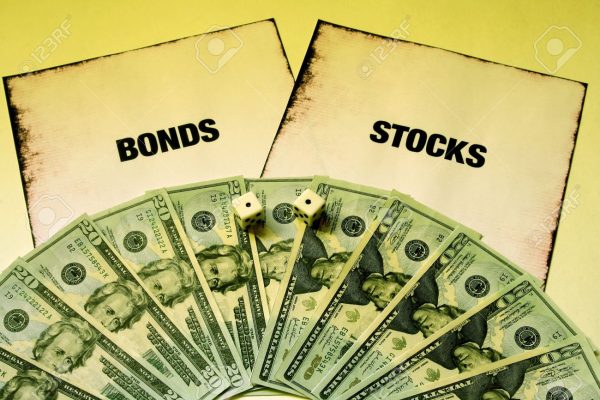
Should Stocks Be Put in a Trust?
Investing in stocks through a trust can offer advantages, for estate planning purposes, such, as safeguarding assets and potentially minimizing tax obligations. Trusts provide a means of ensuring protection and maintaining control over the distribution of assets to beneficiaries.
How Long Should Stocks Be Vented?
This statement appears to be disconnected from the topic. The term “venting” does not usually relate to stocks. It is plausible that there could be some misunderstanding, with another term or concept.
What Stocks Should I Invest in?
When selecting stocks it is important to conduct research and take into account factors such, as the performance of the company trends, in the industry and your own risk tolerance. It is advisable to diversify your portfolio as a way to minimize risks.
Should I Sell My Stocks?
When making decisions, about selling it is important to consider your goals the current market conditions and conduct thorough research. It’s crucial to refrain from making choices solely based on short term fluctuations, in the market.
What Stocks Should I Invest in 2023?
To get the up, to date advice it would be beneficial to refer to reports, from analysts and market research specifically for the year 2023. Additionally keeping track of trends can offer valuable insights.
What Stocks Are in the S&P 500?
The S&P 500 comprises 500 of the companies that are publicly traded in the United States. The composition of this list is subject, to change depending on factors such, as market capitalization and other criteria. This index serves as a gauge of the well being of the U.S. Stock market.
What Are Bonds?
Bonds are essentially loans that individuals or organizations provide to the issuer. By purchasing a bond you agree to lend money to the issuer and receive interest payments in return. When the bond reaches its maturity date you will also be repaid the amount of money you lent. Understanding the difference between stocks and bonds is crucial for diversification.

Are Bonds A Good Investment?
Bonds are often seen as a investment compared to stocks although they usually yield lower returns. They can provide a source of income. Are beneficial, for diversifying your investment portfolio. The role that bonds play in your investment strategy depends on factors such, as your willingness to take risks and how long you plan to invest for.
Are Bonds Taxable?
Interest earned from bonds may be subject, to taxation. However it’s worth noting that certain government bonds may provide interest that’s exempt from taxes. To gain an understanding of the implications it is advisable to seek guidance, from a tax professional.
Are Bonds Tax-Free?
Some types of bonds provide interest that’s not subject, to taxes although the exact amount can differ depending on the specific bond and the regulations, in the local area. These bonds may be appealing to investors who find themselves in tax brackets.
Are Bonds Fixed Rate?
Many bonds come with a fixed interest rate. There are also bonds that have floating interest rates. It’s important to choose the type of bond that best suits your investment goals and market expectations.
Are Bonds Callable?
Certain bonds have the option of being called by the issuer before they reach their maturity date at a determined price. Callable bonds come with the potential, for yields. There is also a risk that the issuer may exercise their right to call them back if interest rates decrease.
Are Bonds Short Term?
Bonds come in timeframes; short term ones that mature in, than three years medium term ones and long term ones that mature in 10 years or more. It’s important to align the duration of your bond investment, with your investment timeline.
Are Bonds Protected From Inflation?
Traditional bonds do not provide protection, against inflation. However there are securities specifically designed to address this issue, such as TIPS in the United States, which adjust their value based on changes, in inflation.
What is a Covalent Bond?
A covalent bond refers to a type of chemical bond that occurs when atoms unite by sharing pairs of electrons. This sharing enables each atom to attain stability. Usually occurs between metallic elements. It’s important to understand that, in the realm of finance, stocks and bonds are concepts with terminology unrelated, to the chemical bonding we’re discussing here.
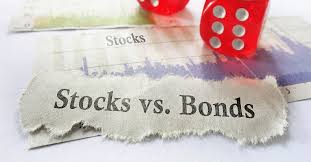
Difference Between Ionic And Covalent Bonds
Ionic bonds occur when electrons are transferred from one atom to another resulting in the creation of charged ions. In contrast covalent bonds are formed through the sharing of electrons, between atoms. It’s analogous to the difference between stocks and bonds in how each functions and the roles they play.
How to Change An Address On Premium Bonds?
If you need to update the address associated with your premium bonds it’s important to contact the organization or institution that issued them. You can do this by reaching out to their customer service team or accessing their platform. Make sure you prioritize the security of your information while communicating.
Pros And Cons Of Bonds
Bonds have benefits, including delivering stability, an income and diversification advantages, for an investment portfolio. Nevertheless there are downsides to consider. These include the potential for returns when compared to stocks vulnerability to fluctuations, in interest rates and the risk of the issuer failing to meet their obligations.
Can Bonds Lose Money?
Certainly the worth of bonds may decrease for a variety of reasons. Factors, like increases, in interest rates uncertainties surrounding the issuers creditworthiness or general market conditions can all play a role. It is crucial for investors to grasp these risks and their potential impact.
How Many Premium Bonds Can I Buy?
The limit, for purchasing premium bonds may vary based on the issuing country or institution. It is recommended to consult the agency or their guidelines, for information.
Do Bonds Pay Dividends?
Bonds generally don’t pay dividends. Instead, they provide interest, frequently termed as the bond’s “coupon.” It’s a distinct difference between stocks and bonds, as stocks might pay dividends.
Do Bonds Compound Interest?
Some types of bonds such, as zero coupon bonds accumulate interest. These bonds do not provide interest payments. Instead they are sold at a price, than their face value. Reach full value over time by accumulating the interest.
Do Bonds Pay Monthly?
Most bonds typically pay interest twice a year. There can be variations. Certain bonds may provide quarterly or even yearly interest payments depending on their terms.
How Do Bonds Work?
When you buy a bond you’re essentially loaning money to the entity issuing it whether its a government or a corporation. In return, for this loan the issuer assures you that they will pay interest, at intervals and repay the amount when the bond matures.
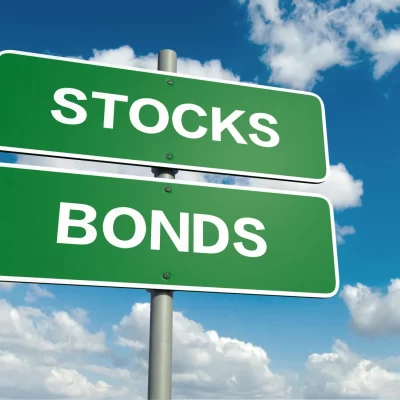
Why Have Bonds in Your Portfolio?
Adding bonds to an investment portfolio can provide advantages such, as diversification reducing volatility and receiving an income. They help balance out the risks associated with types of investments resulting in a well rounded investment strategy.
How Have Bonds Performed in 2023?
To get an understanding of how bonds performed in 2023 it is advisable to refer to the financial news from reputable sources or explore detailed market analysis reports.
Are Bonds Short Term?
Bonds can have durations. We categorize them as short, medium or long term based on how long they take to mature. Short term bonds typically mature within a years while long term bonds can take decades to reach maturity.
Are Bonds Ionic or Covalent?
Chemistry encompasses two types of chemical bonds; covalent. Ionic bonds form when electrons are transferred from one atom to another resulting in the formation of charged ions. These ions are then held together through attraction.
On the hand covalent bonds occur when atoms share electrons ensuring that each atom has an outer electron shell. The type of bond formed, whether it is ionic or covalent primarily depends on the difference, in electronegativity, between the atoms involved.
Are Bonds Worth It?
Bonds have a role, in the world. They can offer a source of income. Act as a safety measure, in a well diversified investment portfolio particularly when market conditions are unpredictable. Unlike stocks, which carry returns but also greater risks bonds provide stability and are generally regarded as less risky.
However, the difference between stocks and bonds in terms of return and risk means that the choice to invest in bonds heavily depends on individual investment goals, risk tolerance, and the investment horizon.
Should Bonds Be in Roth Or Traditional?
The decision, on where to place bonds whether in a Roth or traditional account depends on tax considerations and predictions about tax rates. A Roth account is funded with tax dollars, which means that withdrawals during retirement are not subject to taxes.
On the hand a traditional account offers tax deductions on contributions. Requires taxes to be paid when withdrawing funds. If you expect to be in a tax bracket during retirement it might be more advantageous to place bonds in a Roth account.
Conversely if you anticipate being in a tax bracket a traditional account might be more appropriate. In addition, to tax factors, individual financial situations and long term goals also play roles in guiding this decision.
Should I Buy Bonds Now?
When considering the purchase of bonds it is important to take into account factors such, as the state of the market prevailing interest rates and your personal investment objectives.
Typically when interest rates are low bond prices tend to increase whereas when interest rates rise bond prices tend to decrease. It is also essential to consider your investment time frame, tolerance, for risk and the overall economic environment when making this decision.
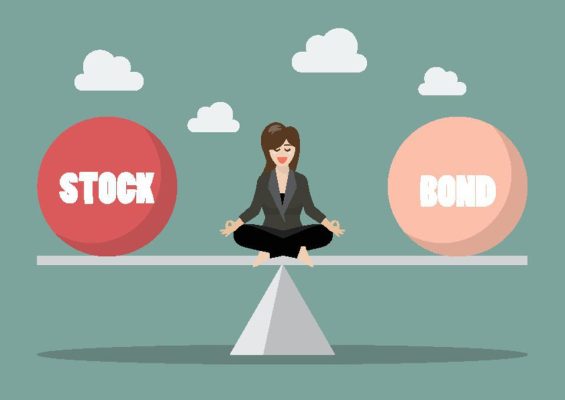
What Bonds To Buy?
When choosing bonds it’s important to consider factors. One of the things to look at is how creditworthy the issuer is, which can be determined by checking their credit ratings, from agencies, like Moodys, Standard & Poors or Fitch.
Additionally you’ll want to pay attention to the bonds terms, maturity date and interest rates (yield). Unlike stocks bonds generally carry risk. Its still crucial to select ones that align with your investment strategy.
What Bonds Are Hydrogen Bonds?
Hydrogen bonds, which are considered as intermolecular forces occur when a hydrogen atom that is bonded to an atom, with high electronegativity like oxygen nitrogen or fluorine is attracted to another electronegative atom either in a different molecule or within a large molecule. These bonds play a role, in biological processes particularly in the DNA structure and the characteristics of water.
Will Bonds Go Up in 2023?
To forecast the movements of bond prices in a year like 2023 one needs to consider factors. These factors include expected changes, in interest rates inflation forecasts and the overall economic situation. Usually analysts and financial experts generate predictions based on market research.
Will Bonds Recover in 2023 in the UK?
Making forecasts, about UK bonds in 2023 would necessitate keeping track of market research, economic outlooks and perhaps even taking geopolitical factors into account. Reports, from analysts and other market insights can serve as sources for making such predictions.
Will Bonds Outperform Stocks in 2023?
It’s always difficult to predict how different asset classes will perform. Even though we can look at data, for some insights it’s important to remember that the future performance of stocks and bonds is uncertain and can be influenced by factors like changes in the economy or geopolitical events. Understanding the distinctions, between stocks and bonds is essential. Spreading investments across both can help manage risks while aiming for rewards.
Difference Between Stocks And Bonds
At its core, the primary difference between stocks and bonds lies in the nature of the investment. When you invest in stocks you essentially become an owner of a company. This can lead to benefits, like receiving dividends and seeing the value of your investment grow over time.
On the hand bonds work like loans that investors make to different entities such as governments, municipalities or corporations. In exchange for lending your money the entity promises to pay you interest, at intervals and return the amount you invested when the bond matures.
What is The Main Difference Between Stocks And Bonds?
Reiterating the essential distinction, the main difference between stocks and bonds is the nature of the investment. Shares of stock represent ownership or equity in a company granting shareholders the right, to a share of the companys assets and profits. On the contrary bonds symbolize debt. They function as loans extended by investors to issuers, who then repay interest and commit to returning the amount when the bond reaches its maturity date.
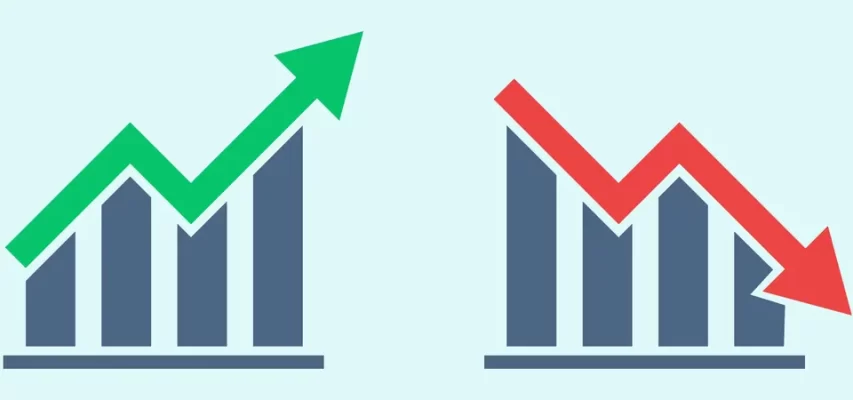
What’s The Difference Between Stocks, Bonds, And Mutual Funds?
Stocks represent a type of investment where individuals hold an ownership stake, in a company. Conversely bonds function as IOUs issued by entities such as corporations or governments ensuring repayment of an amount at a date.
Mutual funds on the hand gather funds from investors to create diversified portfolios comprising stocks, bonds and other assets. It is essential to comprehend the disparity, between stocks and bonds within the framework of funds when making investment decisions.
Which is Better, Stocks Or Bonds?
When determining which option is preferable it greatly relies on the investors willingness to take risks their financial objectives and the timeframe, for their investments. Stocks usually present the potential for returns; however they also entail instability and unpredictability. In contrast bonds are generally regarded as secure.
Offer a steady stream of income through interest payments, which makes them attractive, to cautious investors. Therefore, comprehending the difference between stocks and bonds is paramount to make informed decisions.
What is The Difference Between Stocks And Bonds On Quizlet?
Quizlet is an tool that helps students learn using flashcards and study sets. If someone wants to compare stocks and bonds they can explore Quizlet sets related to finance or investment. By showcasing the distinctions, between stocks and bonds on platforms, like Quizlet it improves students comprehension of concepts.
What is The Difference Between Stocks, Bonds, And Cds?
Investing in stocks allows individuals to have an ownership, in a company, which can potentially result in receiving dividends or making capital gains. On the hand bonds serve as a means of borrowing, where the issuer promises to repay the amount along with interest.
Certificates of Deposit (CDs) however are different from both stocks and bonds as they are bank products that guarantee a fixed interest return over a period of time. Understanding the distinctions between stocks, bonds and CDs is crucial for planning with diversification, in mind.
Difference Between Shares And Bonds
Investing in shares, which are sometimes referred to as stocks allows individuals to acquire a stake, in a corporation. This ownership entitles them to a share of the companys profits or assets. On the hand bonds represent a form of debt.
When someone purchases a bond they are essentially lending money to the issuer. Whether it be a company or government entity. In return the issuer commits to repaying the bond along with interest, over an agreed period of time. The clear difference between stocks and bonds helps guide investment strategies.
Youtube Video: Difference Between Stocks And Bonds
Final Thought
Understanding the difference between stocks and bonds is the cornerstone to creating a balanced and diversified portfolio. Investing in stocks can offer the opportunity, for gains as you become an owner of a company.
However it’s important to note that stocks can also be subject to levels of fluctuation and volatility. On the hand bonds provide a reliable source of income and act as a safety net during periods of market turbulence. As investors navigate the world of finance having an understanding of these two investment instruments is crucial, for making informed and strategic decisions.




